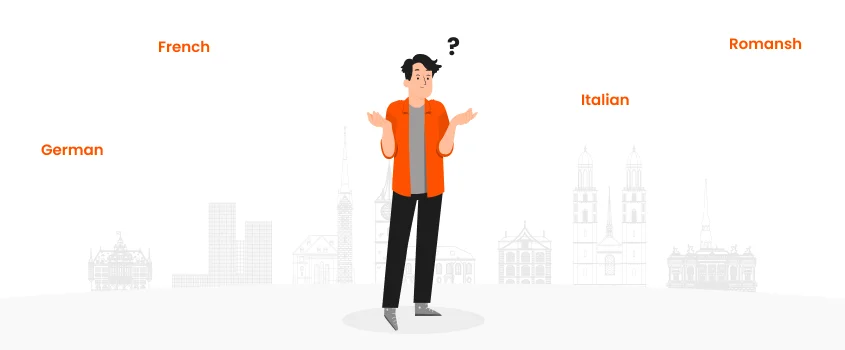Medical Translations in Healthcare Services | Significance & Challenges
By: Eric Nelson Posted on Wed, 04-10-2023

2025 Offer Request a Quote Today and Grab a $50 Coupon for Free!
By: Eric Nelson Posted on Wed, 04-10-2023

Medical translations play a crucial role in the healthcare industry, especially when it comes to managing global healthcare needs. The accurate and timely translation of medical documents is necessary to provide quality care to overseas patients. Medical translations include the translation of medical records, prescription labels, informed consent forms, patient medical history, and other healthcare-related documents. It is also important for global healthcare providers to understand how to do their brand localization the right way and what protocols should be followed for high-quality and error-free results.
In this article, we will discuss the significance and challenges of translations for the healthcare industry.

In the healthcare industry, accurate communication between medical professionals and patients is vital. Miscommunication can result in misdiagnosis, incorrect treatment, and other adverse health outcomes. Medical translations help to eliminate language barriers and allow medical professionals and patients to understand each other’s needs and concerns. Moreover, with correct translations, healthcare providers can provide more personalized and effective care to their patients.
The healthcare industry is heavily regulated. Failure to comply with regulations can result in severe penalties, including fines and loss of licenses. Translations help healthcare providers comply with regulations related to informed consent, medical records, and prescription labels. Translations can also help confirm compliance with local laws and regulations in other countries where medical professionals may operate.
Medical translations enable healthcare providers to expand their services and reach a broader patient population. Translations can help healthcare professionals communicate with patients from different linguistic and cultural backgrounds. This can lead to increased patient satisfaction, loyalty, and ultimately, increased revenue.
Medical translations play a critical role in reducing liability in the healthcare industry. Accurate translations of medical records, prescription labels, and other related documents help to eliminate errors and misunderstandings. This, in turn, can reduce the risk of medical malpractice lawsuits and other legal actions.
Medical translations can improve the efficiency of healthcare operations. Clear and precise translations of medical documents can save time and resources for healthcare providers. For example, when patients have access to translated materials, they can better understand their conditions, treatments, and medications. It can also lead to fewer questions and phone calls to healthcare professionals, freeing up staff time and resources.
Translations can help facilitate better collaboration between healthcare providers. For example, if a patient is being treated by multiple providers who speak different languages, translations can help ensure that all providers are on the same page. Doing this will improve the quality of care provided and reduce the risk of miscommunication.
Accurate translations can enhance the reputation of healthcare providers. Providing quality care to patients from different linguistic and cultural backgrounds can improve patient satisfaction and loyalty. It also results in positive word-of-mouth referrals and increased business.

One of the biggest challenges of medical translations is the technical language used in the healthcare industry. Medical terminology is complex, and it can be difficult to accurately translate medical terms into different languages. Medical translators must have a deep understanding of medical terminology and be familiar with the intricacies of different languages so that medical data is accurately translated.
Translations also require an understanding of cultural nuances. Medical translators need to be aware of cultural differences in healthcare practices in order to convey medical information accurately. For example, a medical translator who is not familiar with a particular culture may inadvertently use language that is offensive or inappropriate, which can hinder effective communication.
Healthcare translations often need to be completed quickly, which can create significant challenges for translators. Translators must work efficiently while still ensuring accuracy and attention to detail. Rushed translations also can result in errors or inaccuracies, which can have serious consequences for patients.
Healthcare translations are subject to legal requirements, which can vary depending on the jurisdiction. In some cases, healthcare providers may be required to provide translations of medical documents to comply with local laws or regulations. Moreover, professional translators should be aware of these legal requirements to ensure that their translations are error-free and comply with local regulations.
Medical jargon can be difficult for patients to understand, even in their native language. When translated into another language, medical jargon can be even more confusing. Similarly, medical translators must be able to convey medical information in a way that is clear and understandable for patients while still maintaining the technical accuracy of the original document.
The lack of standardization in translations can create significant challenges for healthcare providers. Different translators may use different terminology, which can lead to confusion and misunderstandings. Moreover, healthcare companies may need to work with multiple translators, which can make it difficult to maintain content consistency across translations.
Inaccurate translations can have serious consequences for patients. Misinterpretations or mistranslations can lead to incorrect diagnoses, treatments, and other adverse health outcomes. Moreover, healthcare companies need to work with certified and experienced medical translators who have a deep understanding of medical terminology and are mindful of the nuances of different languages and cultures.

Medical translation challenges can make it difficult to enable accurate and effective communication between healthcare professionals and patients who speak different languages. However, there are strategies that healthcare professionals can use to overcome these challenges and provide high-quality translations. Here are some important strategies for overcoming healthcare translation challenges in the healthcare industry.
One of the most important strategies for overcoming medical translation challenges is to work with qualified and experienced medical translators. Moreover, medical translators must have a deep knowledge of medical terminology and be familiar with the nuances of different languages and cultures to provide correct translations. It is also important for healthcare providers to take the time to choose translators who are qualified and experts in healthcare translations and they should have linguistic fluency in the required languages.
Providing context and feedback is crucial for accurate translations. Healthcare companies have to make sure that their translators have access to medical records, patient histories, and other relevant documents to ensure that they have the necessary context to produce high-quality and error-free translations. Medical companies must also provide feedback on the translations for their effectiveness and accuracy.
Medical dictionaries and glossaries are essential tools for medical translators. They also help translators comprehend medical terminology and provide correct translations. So, healthcare professionals should provide translators access to medical dictionaries and glossaries to help them produce more accurate translations.
Cultural nuances are significant in translations. Healthcare practices and beliefs vary significantly across cultures, and medical translators must be aware of these differences, so they clearly and accurately convey healthcare information. You should also confirm that translators are familiar with the cultural nuances relevant to the patients they are translating for.
Clear communication channels are essential to enable effective communication flow between healthcare providers and medical translators. Healthcare companies need to establish communication channels with their translators, including email, phone, and video conferencing. So, they can provide their translators with clear instructions on the type of translation required and the deadline for completion.
Medical translations are subject to legal requirements that vary depending on the jurisdiction. Healthcare service providers must ensure that their translations comply with local laws and regulations. Moreover, hire expert translators who are well aware of the legal requirements and can provide accurate translations that comply with local regulations.
Translation management systems and CAT tools can help healthcare providers manage their translations more effectively. These systems also allow medical professionals to track their translations, maintain quality control, and manage multiple translators. Medical professionals can use these systems to streamline their translation processes and deliver accurate and timely translations. Moreover, using a translation management platform can help you effectively manage and organize your translated documents in one place.
In conclusion, while medical translations in the healthcare industry present various challenges, some strategies can help overcome them. Working with qualified and experienced translators, providing context and feedback, using medical dictionaries and glossaries, considering cultural nuances, establishing a clear communication flow, ensuring compliance with legal requirements, and using the right translation technology are all effective ways to ensure clear and seamless communication between medical professionals and patients.
By using these strategies, healthcare companies can provide high-quality care to patients, regardless of their language or region. However, it is important to note that accurate translations are not only essential for patient safety but also for building trust and fostering long-lasting relationships with them.

The number of worldwide Internet users already exceeded 3 billion people in January 2015, according to Satista dot com. And
Read more
A marriage certificate is a legal document that joins two people who want to live with each other, for the
Read more
A death certificate is a very essential document issued by a doctor, which certifies that the person is deceased. This
Read more
Romania is officially known as the Republic of Romania. It is located at the junction of Central-Eastern and South-Eastern Europe.
Read more
Switzerland is a landlocked country with a very interesting history. The culture and languages spoken in Switzerland are highly influenced
Read more
Many people really do not know what divorce is exactly. Divorce is the legal process of separating couples who have
Read more
If you have planned to drive for the first time, you will have to start with a learner’s permit. There
Read more
Bill of exchange is a way to communicate with others for resolving issues legally. It is a systematic way of
Read more
Making a will gives you an opportunity to declare the names of one or more persons; you want to manage
Read more

